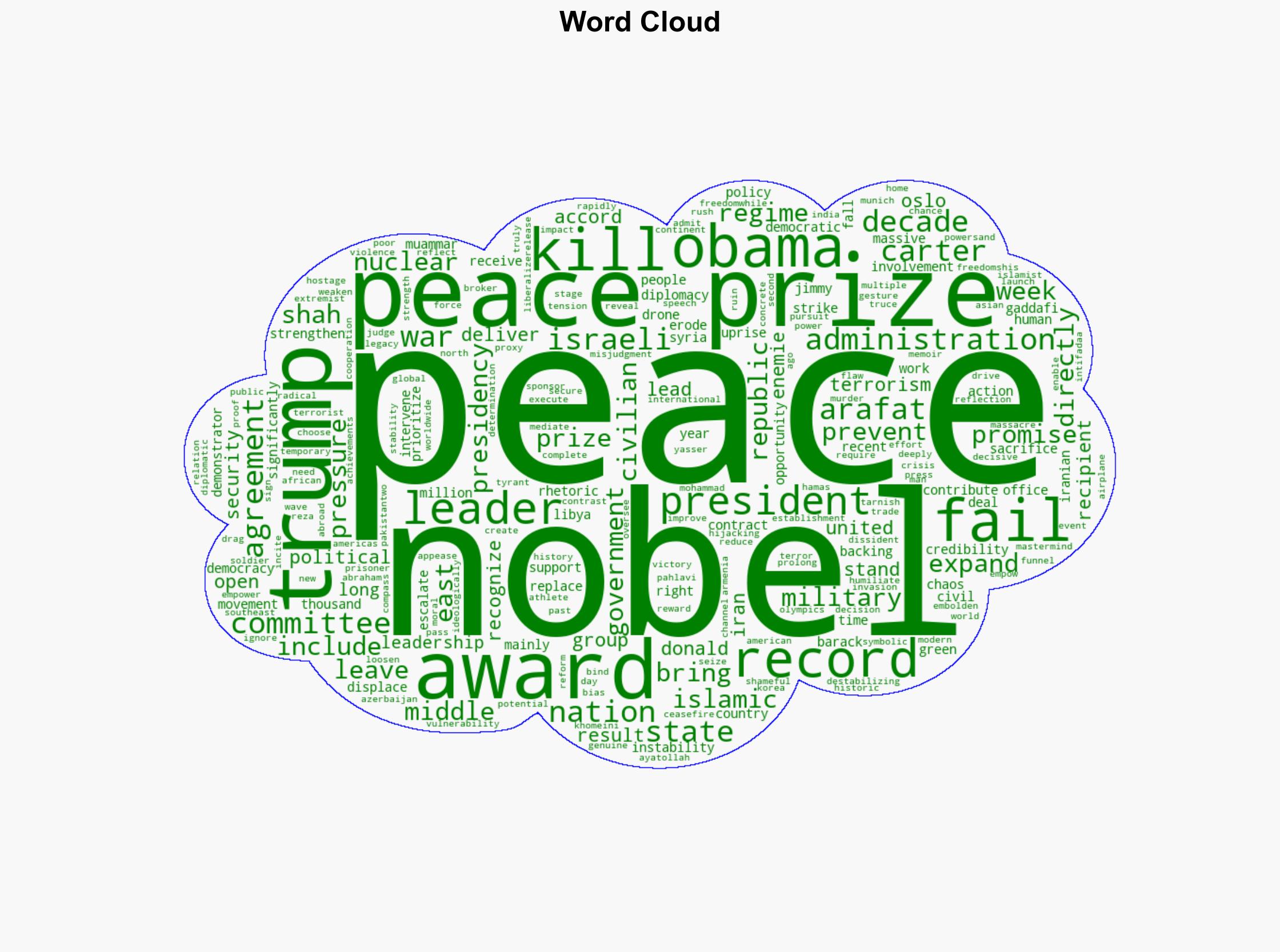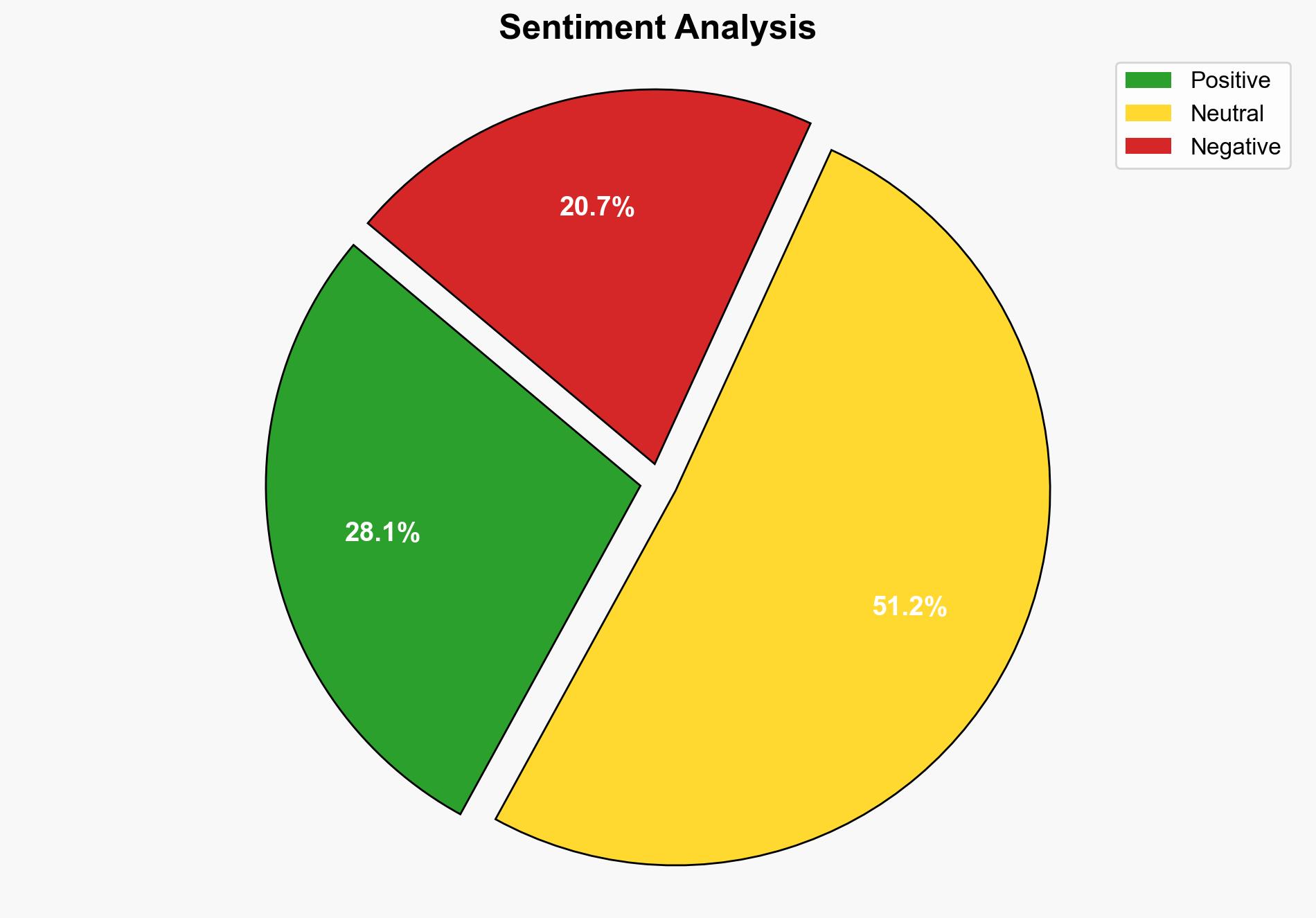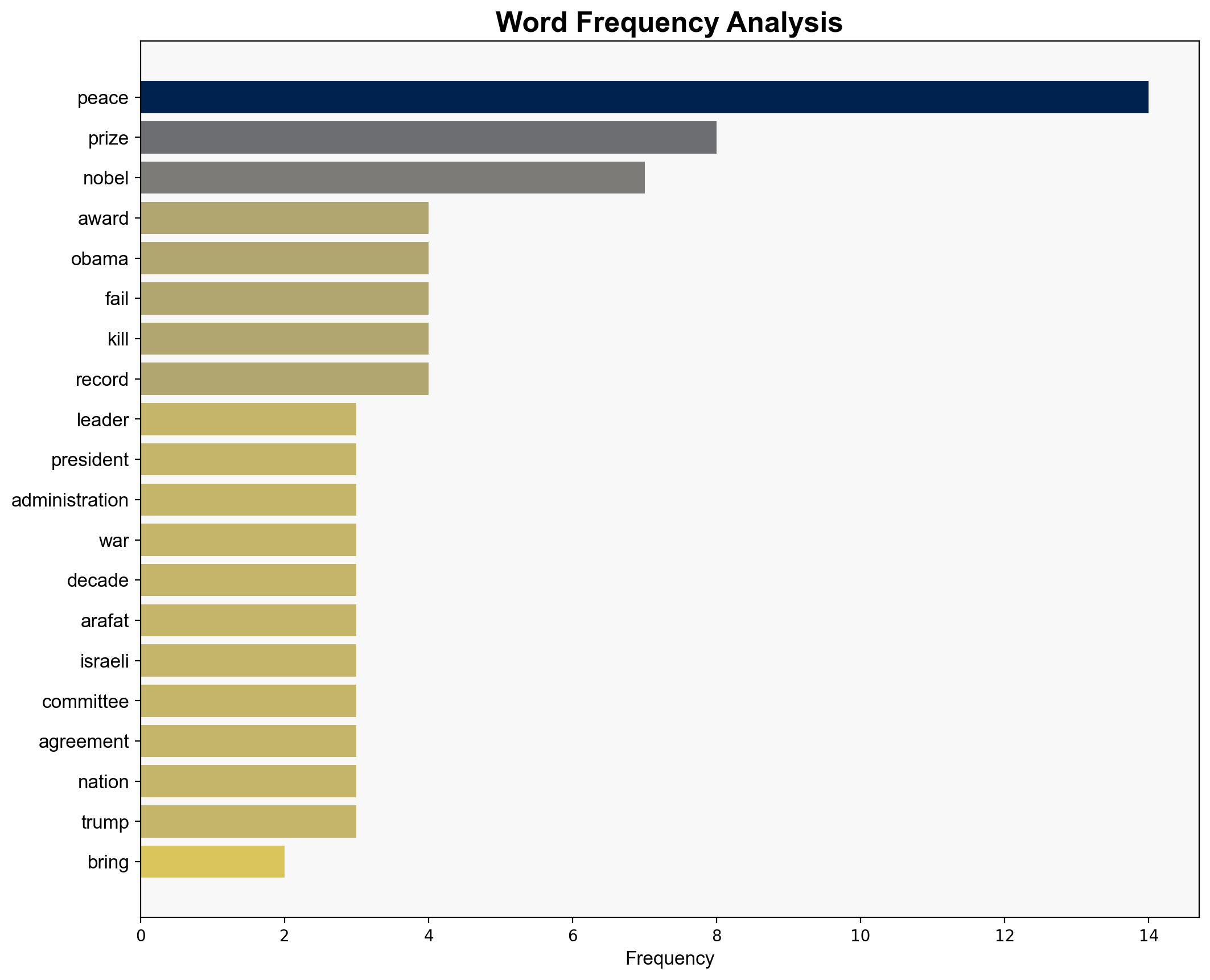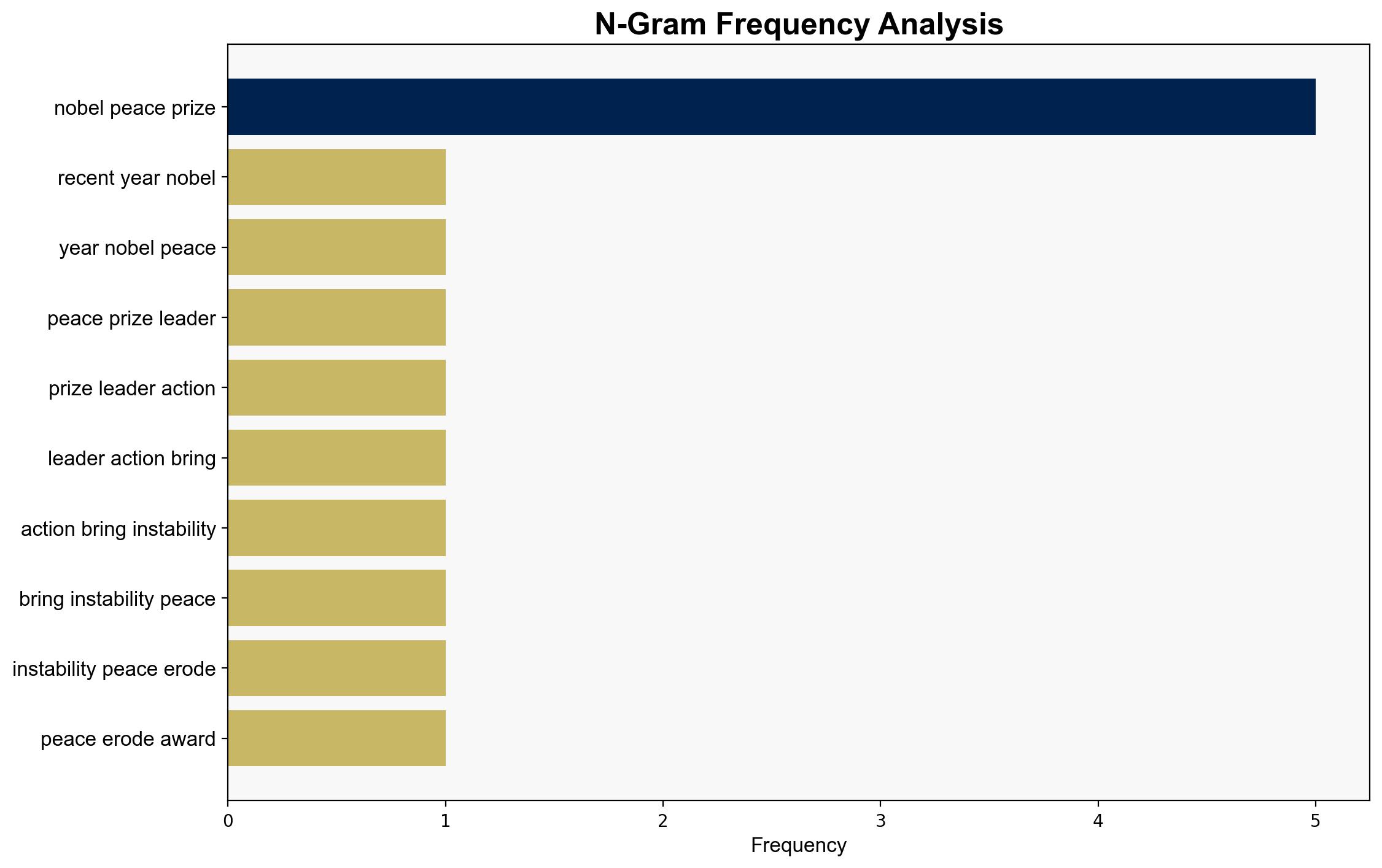Nobel Peace Prizes History of Crowning Chaos Over Stability – Thegatewaypundit.com
Published on: 2025-08-09
Intelligence Report: Nobel Peace Prizes History of Crowning Chaos Over Stability – Thegatewaypundit.com
1. BLUF (Bottom Line Up Front)
The analysis suggests that the Nobel Peace Prize’s historical decisions have sparked debate over its impact on global stability. The most supported hypothesis is that the Prize has occasionally been awarded to individuals whose actions did not lead to sustained peace, potentially undermining its credibility. Confidence in this assessment is moderate due to the subjective nature of evaluating peace efforts. Recommended action includes a review of the Prize’s selection criteria to ensure alignment with long-term stability goals.
2. Competing Hypotheses
1. **Hypothesis A**: The Nobel Peace Prize has been awarded to individuals whose actions have inadvertently led to instability, thus eroding the Prize’s credibility.
2. **Hypothesis B**: The Nobel Peace Prize reflects a broader strategic vision that prioritizes symbolic gestures of peace, which may not immediately translate into stability but aim to inspire long-term change.
Using the Analysis of Competing Hypotheses (ACH) 2.0, Hypothesis A is better supported by the evidence presented, particularly the examples of Barack Obama, Jimmy Carter, and Yasser Arafat, whose actions post-award are argued to have contributed to regional instability.
3. Key Assumptions and Red Flags
– **Assumptions**: The analysis assumes that the Nobel Peace Prize should directly correlate with immediate and sustained peace. It also presumes that the actions of recipients are the sole or primary cause of subsequent instability.
– **Red Flags**: The narrative may exhibit confirmation bias by selectively highlighting negative outcomes associated with certain recipients while ignoring broader geopolitical contexts. There is also a lack of consideration for the complexity of international relations and the multifaceted nature of peace-building.
4. Implications and Strategic Risks
The perception of the Nobel Peace Prize as a politically biased institution could diminish its influence and effectiveness as a tool for promoting peace. This perception might embolden adversarial entities to exploit the perceived weaknesses in Western diplomatic efforts. Additionally, the narrative could fuel skepticism towards international awards and institutions, potentially impacting global cooperation.
5. Recommendations and Outlook
- **Recommendation**: Conduct a comprehensive review of the Nobel Peace Prize selection process to ensure it aligns with contemporary peace-building strategies and long-term stability objectives.
- **Scenario-Based Projections**:
– **Best Case**: Reformed selection criteria enhance the Prize’s credibility and effectiveness in promoting global peace.
– **Worst Case**: Continued perception of bias leads to diminished influence and relevance of the Prize.
– **Most Likely**: Incremental changes in the selection process improve transparency and public perception over time.
6. Key Individuals and Entities
– Barack Obama
– Jimmy Carter
– Yasser Arafat
– Donald Trump
7. Thematic Tags
national security threats, geopolitical stability, international diplomacy, peace-building strategies




